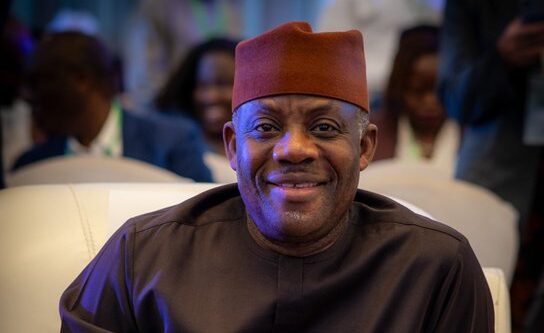The Federal Government has raised concerns over declining teaching standards across the country and is initiating key reforms to strengthen professionalism and quality in the education sector.
Speaking at the KADA EduPACT International Summit 2025 in Kaduna, the Minister of Education, Dr. Maruf Tunji Alausa, outlined measures to revitalise the Teachers Registration Council of Nigeria (TRCN) as part of broader efforts to raise the bar in teacher training, recruitment, and welfare.
Delivering the keynote address at the summit themed “Strategic Visioning for Educational Transformation: Developing the Kaduna State Education Model,” Dr. Alausa stressed the central role of teachers in the success of education reform efforts.
“No education reform will succeed without teachers,” he said. “We must prioritise teacher recruitment, training, motivation, and continuous professional development to ensure our education system meets 21st-century standards.”

The minister noted that the Federal Government is deploying a Teacher Internship and Quality Assurance Framework, alongside ongoing reforms at the TRCN, aimed at harmonising standards and promoting professionalism in classrooms nationwide.
Commending Kaduna State for its strides in education, Alausa described the state’s model as a potential template for national adoption. He praised the administration of Governor Uba Sani for implementing policies such as a 40% reduction in tuition at state-owned tertiary institutions and the launch of a $62 million basic education programme.
“What we are witnessing here is not just progress, but proof that deliberate and inclusive reforms can deliver results,” Alausa remarked, applauding the use of data-driven leadership and increased education funding.
He urged other state governments to adopt Kaduna’s collaborative governance model, saying education must be treated as a shared responsibility between government, communities, and development partners.
Dr. Alausa further laid out the Federal Government’s five-pillar reform agenda, which includes learner-focused systems, digital literacy, equity and inclusion, sustainability, and resilience. He emphasized the need to move beyond building infrastructure to enhancing teacher quality, curriculum relevance, and gender-sensitive education financing.
“Our vision is to equip students with critical thinking, problem-solving, and digital skills, while ensuring no child is left behind,” he said.
The minister also advocated for the integration of artificial intelligence and remote learning platforms to maintain educational continuity during crises.
The three-day summit gathered local and international stakeholders and is expected to culminate in a Kaduna State Education Transformation Blueprint aligned with both national policy and global education goals.
Governor Uba Sani, in his address, reiterated his administration’s commitment to inclusive, technology-driven education. He cited ongoing initiatives, including the construction and rehabilitation of over 1,000 classrooms, the establishment of 62 new secondary schools, and the distribution of 1.48 million instructional materials.
“We are making sure no child in Kaduna is denied education because of financial barriers,” the governor said.
He also unveiled a new initiative targeting the return of 300,000 out-of-school children, describing the crisis as “a stain on our collective conscience.”
According to Governor Sani, investments in Kaduna State University have already reached ₦500 million, leading to the approval of 40 new academic programmes for the 2024/2025 academic year by the National Universities Commission.
“Education remains central to Kaduna’s development agenda. We are transitioning from fragmented interventions to a unified, data-driven, and future-ready system,” he concluded.




